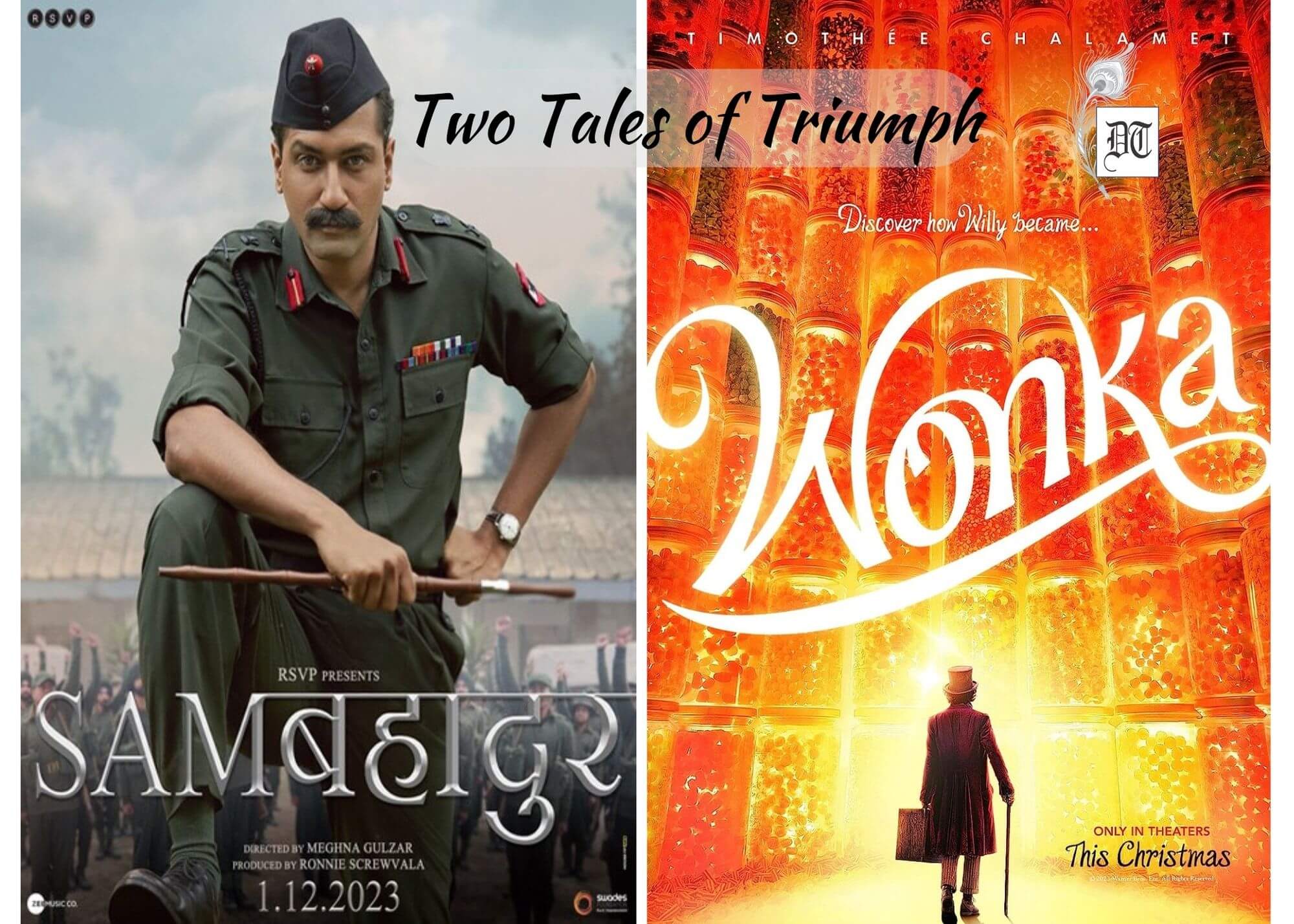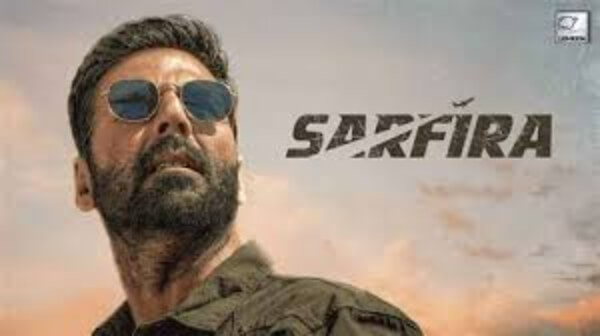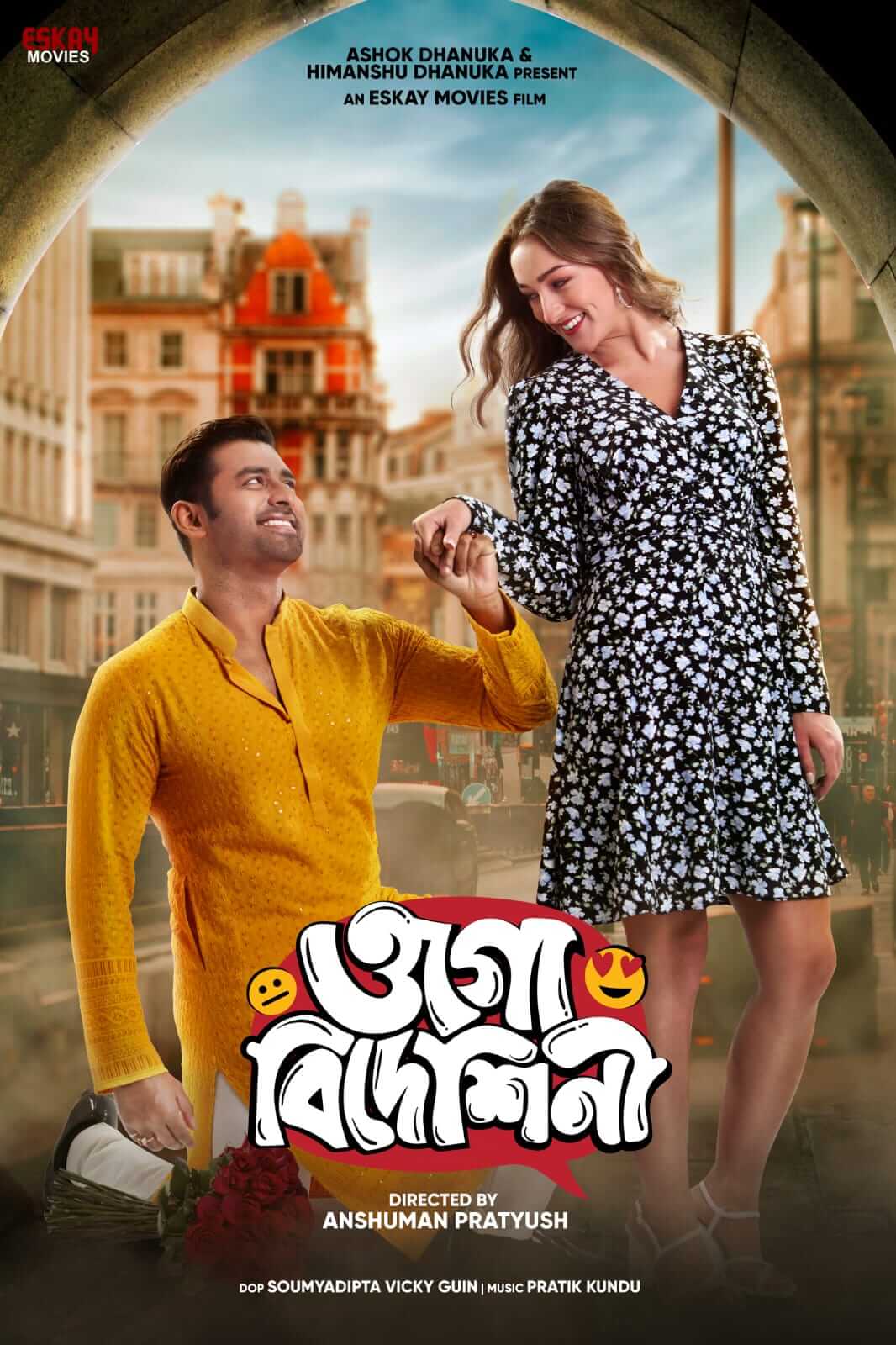‘Sam Bahadur’ and ‘Wonka’ are two films that explore the life of Field Marshal Sam Manekshaw and the origins of Willy Wonka, respectively, with stellar performances, a review by Sukanya, exclusively for Different Truths.

‘Sam Bahadur’ delves into the life of India’s revered Field Marshal, Sam Manekshaw. Directed by Meghna Gulzar, the film, co-written by Bhavani Iyer and Shantanu Srivastava, meticulously chronicles Sam’s journey, shaping India’s military landscape from World War II to the creation of Bangladesh in 1971.
Act I: A Defined Beginning
The movie starts by seamlessly introducing Sam’s character and his early military years. It avoids unnecessary detours, laying a solid foundation for the narrative without losing focus.
Act II: Military Campaigns and Tensions
With finesse, the screenplay navigates through crucial military campaigns…
With finesse, the screenplay navigates through crucial military campaigns, portraying Sam’s leadership during tense moments. It skillfully captures the essence of his pivotal roles without getting lost in unnecessary details.
Act III: Climactic Brilliance
The film culminates during the Indo-Pakistani War of 1971, showcasing Sam’s strategic brilliance. The screenplay maintains its sharp focus on the core conflict, steering clear of distractions.
Script Elegance and Character Portrayals
The screenplay shines in its precision, capturing pivotal moments in Sam’s life without unnecessary diversions. While Vicky Kaushal’s portrayal of Sam is exceptional, embodying the officer’s essence, Fatima Sana Shaikh’s portrayal of Indira Gandhi lacks depth, missing an opportunity for a more detailed and realistic depiction.
Vicky Kaushal’s performance deserves accolades for bringing Sam Manekshaw to life…
Vicky Kaushal’s performance deserves accolades for bringing Sam Manekshaw to life on screen. His dedication to the character creates an immersive experience, almost as if the legendary officer is present in the theatre.
Final Verdict
‘Sam Bahadur’ is a tribute to a remarkable figure, framed by a screenplay that meticulously highlights essential phases of Sam Manekshaw’s life. While some characters could have been more intricately portrayed, Vicky Kaushal’s stellar performance elevates the movie, making it a compelling homage to this iconic personality in Indian history.
***
‘Wonka’, directed by Paul King, follows a structured three-act narrative, delivering a light-hearted and delightful viewing experience with a fresh take on the origin story of Willy Wonka.
Act I: Dreaming and Daring Adventures
The film opens with Willy Wonka, an aspiring chocolatier, arriving in a European city…
The film opens with Willy Wonka, an aspiring chocolatier, arriving in a European city to pursue his dream of opening a chocolate shop. Despite initial setbacks and encountering a dubious duo running a laundromat, Wonka’s determination to sell his unique “hover chocs” ignites hope.
Act II: Unveiling the Chocolate Cartel
As Wonka becomes entangled in debt and a sinister world of chocolate rivalry, he gathers a motley crew trapped in the laundromat. Together, they uncover a nefarious Chocolate Cartel, prompting Wonka to devise a cunning plan to break free and share his chocolates with the world.
Act III: Triumph, Redemption, and Shared Joy
With perseverance and the help of newfound friends, Wonka opens his dream store, only to face betrayal and the collapse of his business. As tensions rise, revelations about identity and familial ties surface. A grand finale sees Wonka confronting the Cartel, showcasing the power of unity and the joy of shared experiences through chocolate.
It is a refreshing take on the origin story of a beloved character, filled with catchy original songs…
It is a refreshing take on the original story of a beloved character, filled with catchy original songs that seamlessly blend into the narrative. Each song not only entertains but propels the story forward, enriching the audience’s experience.
From the whimsical tunes to the poignant moments, the soundtrack crafted by Neil Hannon and the score by Joby Talbot contributes immensely to the film’s charm. These musical pieces stand as testaments to both storytelling and musical prowess, enhancing the delightful nature of Wonka’s journey.
The film ‘Wonka’ brings a fresh perspective to the origins of Willy Wonka, a character rooted in Roald Dahl’s iconic work. While it maintains the whimsy and charm reminiscent of previous adaptations, this rendition diverges by infusing more light-heartedness and musicality into the narrative.
Compared to its predecessors, notably the 1971 film ‘Willy Wonka & the Chocolate Factory’ and the 2005 adaptation ‘Charlie and the Chocolate Factory,’ this version prioritises a musical aspect, utilising original songs to carry the story forward. The earlier adaptations had their strengths in portraying the darker, more mysterious facets of Wonka’s world, but ‘Wonka’ opts for a more family-friendly, joyous tone, akin to the spirit found in the ‘Paddington’ films.
Timothée Chalamet’s portrayal of Willy Wonka garners both praise and criticism, particularly about his singing voice.
Timothée Chalamet’s portrayal of Willy Wonka garners both praise and criticism, particularly about his singing voice. Nonetheless, his performance anchors the film, showcasing Wonka’s determination and growth amidst a world of chocolate intrigue. While some fans of the earlier movies might miss the darker undertones or the distinct performances of previous Wonkas like Gene Wilder and Johnny Depp, “Wonka” stands out as a delightful departure, capturing the essence of the character in a fresh and musically enchanting way.
“Wonka” is a well-structured film that creatively reimagines the beloved character’s origins, making it a charming and enjoyable watch for audiences of all ages.
Pictures from IMDb






 By
By
 By
By
